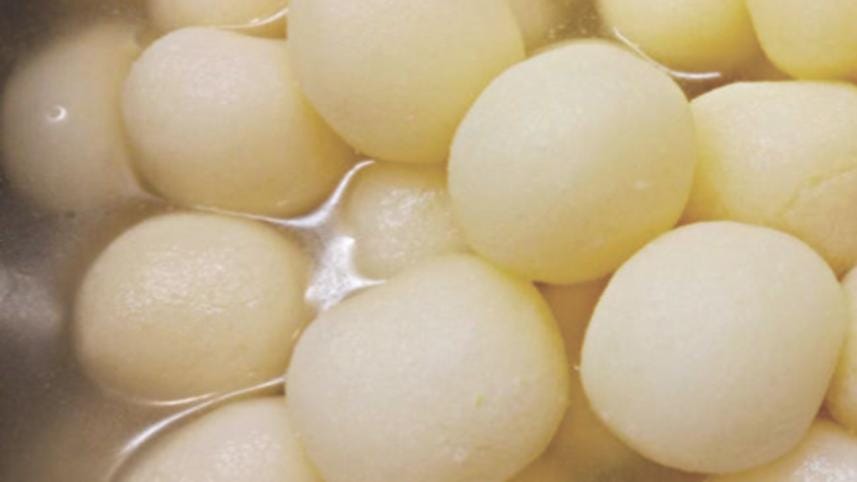Rosogolla pride West Bengal's

When we talk about sweets, nothing can beat the spongy, syrupy Rosogolla. Served on almost every Bangladeshi occasion, the signature sweet has been an integral part of the Bangalee culture for ages.
Steeped in a rich, delectable history, the sweetmeat is believed to have originated in southern part of the country. However, its origins have been shrouded in mystery and the topic has been hotly debated for years.
But now India's Geographical Indications (GI) Registry put the disagreements to bed as they recently announced that the juicy sweet originated in West Bengal. The announcement ended a two-and-a-half-year-old bitter dispute between Odisha and West Bengal over the origin of the Rosogolla, our Delhi correspondent reported.
"It has been settled under the GI Act that authenticates a product relating to either a geographical location or community or society," said Deputy Controller of Patents and Designs, Sanjay Bhattacharya.
The GI, under the World Trade Organization, is a sign that identifies a product as originating from a particular place.
However, despite the declaration, there is strong disagreement over the issue as many Bangladeshi sweet traders and consumers believe that the sweetmeat was created by Bangladeshi sweet-makers.
In a report, BBC Bangla Service quoted the late veteran recipe writer and food connoisseur Shawkat Osman who had said that although there is no written proof, but it is believed that the Portuguese used to prepare cheese and sandesh (a particular kind of sweet) from milk in sixth century.
The Bangalee wives would then prepare rosogolla or a form of it with those. He added, "Kolkata's Nabin Chandra, who is presumed to be the maker of rosogolla, is a man from Barisal and lived near Patuakhali."
It is believed that Chandra took his recipe with him to Kolkata, the BBC report said. Adding to Chandra's legitimacy is a host of fabled admirers, including Rabindranath Tagore, who was rumoured to have known whether his rosgolla came from Chandra or elsewhere by taking just one small bite.
After yesterday's GI announcement, West Bengal Chief Minister Mamata Banerjee, who is in London, celebrated the news with a tweet saying: "Sweet news for us all. We are very happy and proud that #Bengal has been granted GI (Geographical Indication) status for Rosogolla."
West Bengal's Education Minister Partha Chattetjee said, "Odisha unnecessarily raised a dispute over the issue."
Odisha's Science and Technology minister Pradip Kumar Panigrahi had told media earlier that more than one committee set up to trace the origin of 'rosogolla' pointed to 'conclusive evidence' that the sweet existed in the state for about 600 years.
On the other hand, the West Bengal government used 19-century history to claim rosogolla was invented by Nabin Chandra Das, a famous sweetmeat maker, in 1868.


 For all latest news, follow The Daily Star's Google News channel.
For all latest news, follow The Daily Star's Google News channel.
Comments